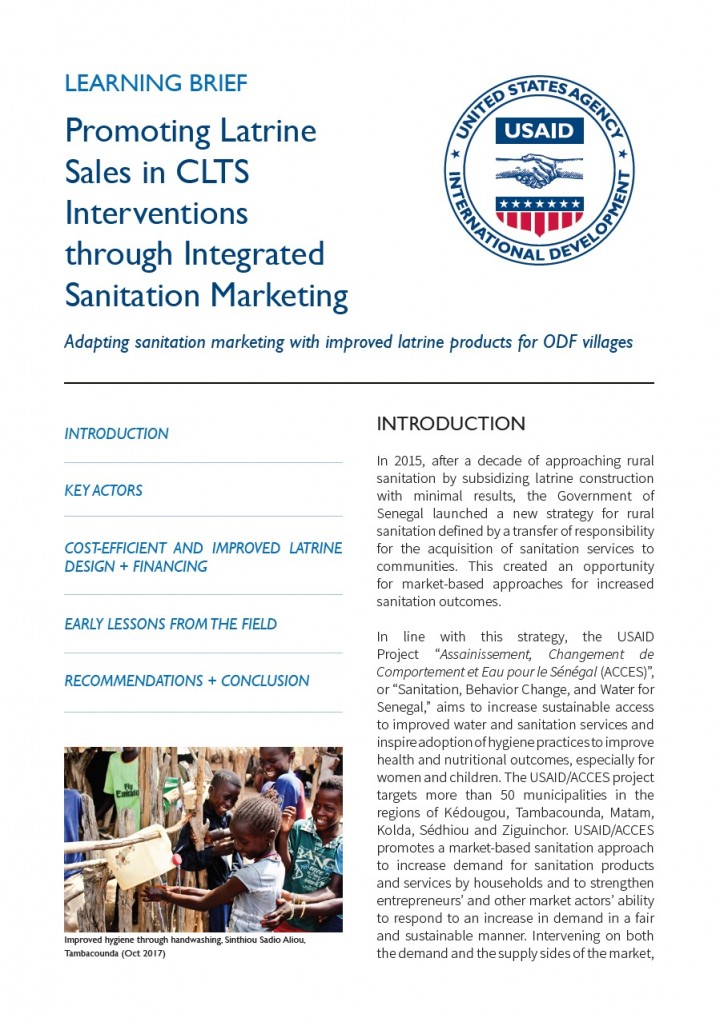Promoting Latrine Sales in CLTS Interventions through Integrated Sanitation Marketing Learning Brief USAID (2020)
In 2015, after a decade of approaching rural sanitation by subsidizing latrine construction with minimal results, the Government of Senegal launched a new strategy for rural sanitation defined by a transfer of responsibility for the acquisition of sanitation services to communities. This created an opportunity for market-based approaches for increased sanitation outcomes. In line with this strategy, the USAID Project “Assainissement, Changement de Comportement et Eau pour le Sénégal (ACCES)”, or “Sanitation, Behavior Change, and Water for Senegal,” aims to increase sustainable access to improved water and sanitation services and inspire adoption of hygiene practices to improve health and nutritional outcomes, especially for women and children. The USAID/ACCES project targets more than 50 municipalities in the regions of Kédougou, Tambacounda, Matam, Kolda, Sédhiou and Ziguinchor. USAID/ACCES promotes a market-based sanitation approach to increase demand for sanitation products and services by households and to strengthen entrepreneurs’ and other market actors’ ability to respond to an increase in demand in a fair and sustainable manner. Intervening on both the demand and the supply sides of the market, USAID/ACCES aims to create an enabling environment for equitable delivery of quality WASH products and services with the goal of universal sanitation coverage. The project has two geographically tailored approaches: a more traditional market-sanitation approach for urban and peri-urban zones, and a CommunityLed Total Sanitation (CLTS) approach with integrated marketing components for rural areas.
Bibliographic information
USAID (2020). Promoting Latrine Sales in CLTS Interventions through Integrated Sanitation Marketing Learning Brief USAID
Filter / Tags
Peri-urbanRuralUrban (entire city)Case studies in other formatsEnglish
Downloads
Promoting Latrine Sales in CLTS Interventions through Integrated Sanitation Marketing
Type: application/pdf
Size: 1.35 MB

